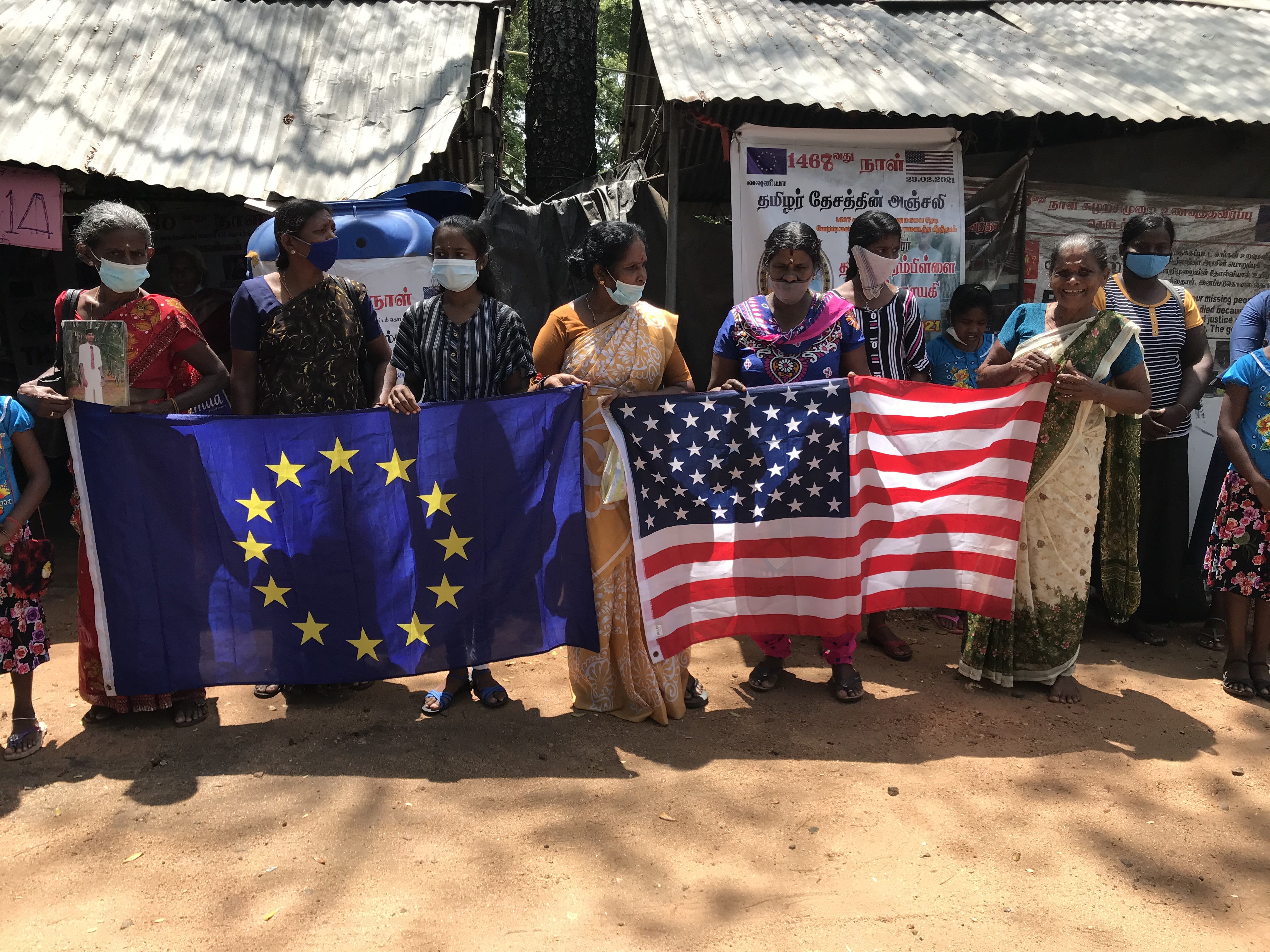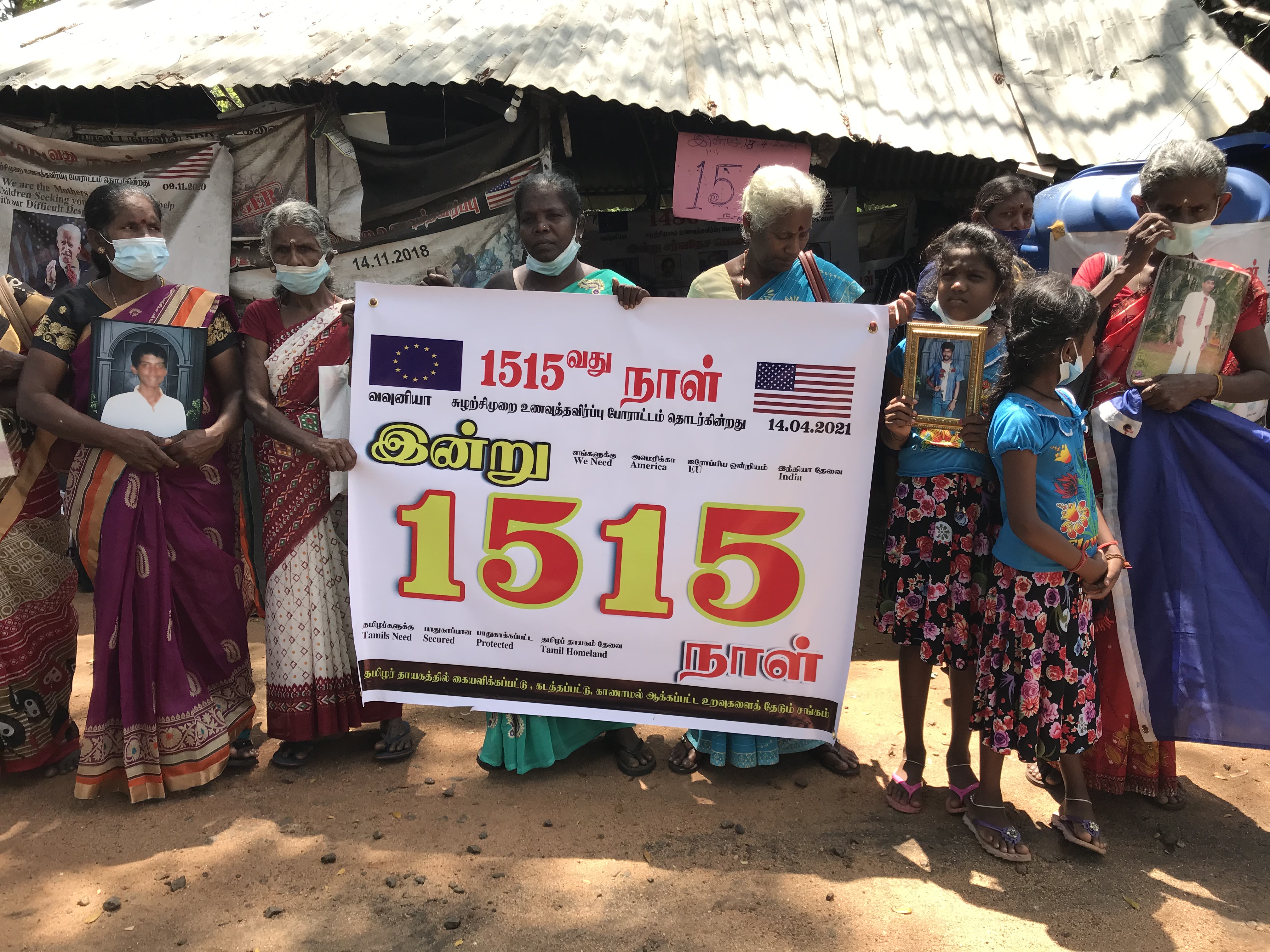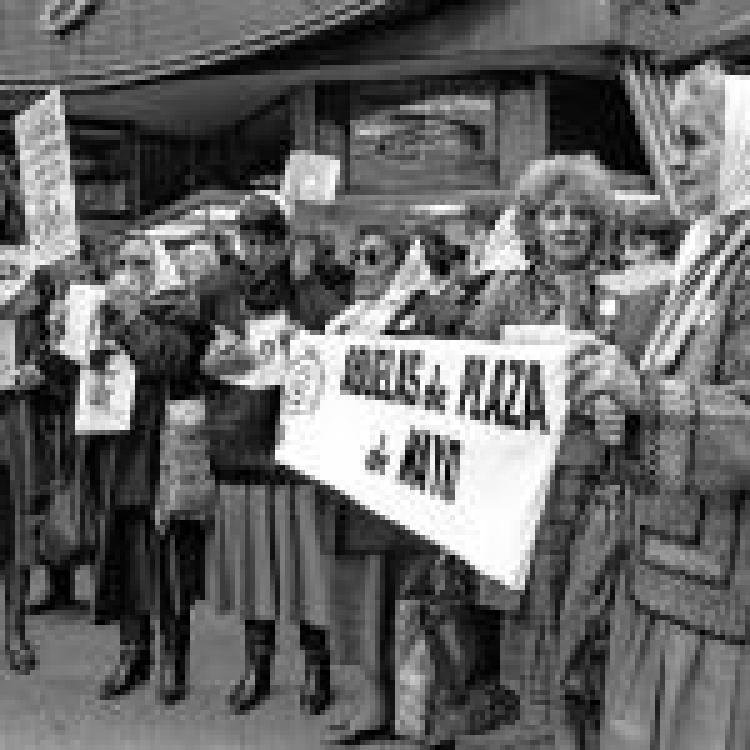Families of the disappeared in Vavuniya marked 1,515 days of protest on Wednesday, demanding support from the international community, including intervention from the United States government. They highlighted the systemic issues within Sri Lanka and continued negligence to "find even a single child" after thousands were forcibly disappeared at the end of the armed conflict.
"We have protested on the streets for days, yet we are ignored by everyone. Even when we present evidence to them they continue to detain them. We do not know why they are still detained. Please release them!," urged one of the protesting mothers.

The families of the disappeared also note that the issue lies not only with the undue influence of the Buddhist clergy; nor the bigotry of Sinhala nationalist politicians; but also with the "Sinhala public who elect these fiercely [Sinhala] nationalist politicians." They emphasised that, "this has been an issue since Sri Lanka gained independence from the British." One of the mothers added, "“This is the only way left to help find our children. We told and notified so many people, yet they continue as if they do not know what happened. We do not know anything about [our children]. We have been here for [years] and do not have any solutions. We want our children!”

However, they highlight the strength in the unity of Tamils across the North-East and marked it with a joint statement to the UN Human Rights Council calling for Sri Lanka to be referred to the International Criminal Court. "We showed this through the peaceful mass demonstration from Pottuvil to Polikandy (P2P). Perhaps we need another mass demonstration like P2P with flags to get international intervention".

"We urge Tamil politicians and others in calling on the US to assist Tamils in combatting Sri Lanka’s genocidal regime," said one of the demonstrators.
Families of the disappeared have consistently called for international support in finding out the truth behind the enforced disappearance of their loved ones. It is estimated that between 60,000 -100,000 people were forcibly disappeared from the 1980's until the end of the armed conflict in 2009. During the final phase of the war, those who were enforcedly disappeared were predominately Tamil with many being last seen in military custody.



